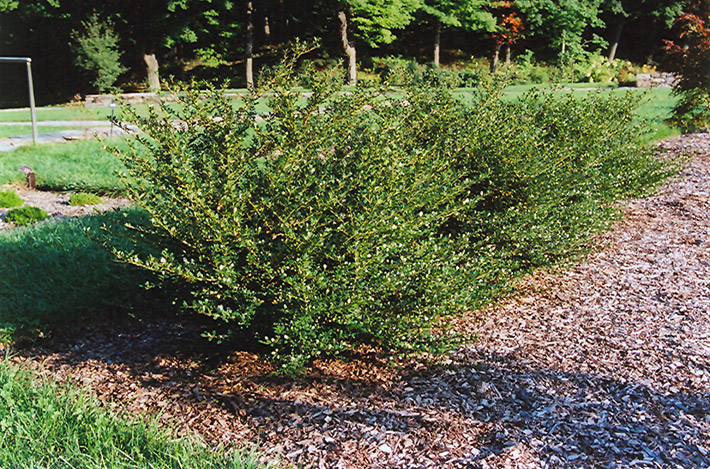>> Home
Height: 5 feet
Spread: 7 feet
Sunlight:
![]()
![]()
Hardiness Zone: 5b
Other Names: Boxleaf Holly
Description:
A distinctive broadleaf evergreen shrub, particularly effective for massing, hedges and topiary, takes pruning very well, small leaves add aesthetic value; this is one of the hardiest cultivars, does best in evenly moist, acidic soils
Ornamental Features
Glory Japanese Holly is primarily valued in the landscape or garden for its ornamental globe-shaped form. It has dark green evergreen foliage. The small glossy oval leaves remain dark green throughout the winter.
Landscape Attributes
Glory Japanese Holly is a dense multi-stemmed evergreen shrub with a more or less rounded form. Its relatively fine texture sets it apart from other landscape plants with less refined foliage.
This shrub will require occasional maintenance and upkeep, and is best pruned in late winter once the threat of extreme cold has passed. It has no significant negative characteristics.
Glory Japanese Holly is recommended for the following landscape applications;
- Accent
- Mass Planting
- Hedges/Screening
- General Garden Use
Planting & Growing
Glory Japanese Holly will grow to be about 5 feet tall at maturity, with a spread of 7 feet. It tends to fill out right to the ground and therefore doesn't necessarily require facer plants in front, and is suitable for planting under power lines. It grows at a slow rate, and under ideal conditions can be expected to live for 40 years or more.
This shrub does best in full sun to partial shade. It prefers to grow in average to moist conditions, and shouldn't be allowed to dry out. It is very fussy about its soil conditions and must have rich, acidic soils to ensure success, and is subject to chlorosis (yellowing) of the foliage in alkaline soils. It is highly tolerant of urban pollution and will even thrive in inner city environments. Consider applying a thick mulch around the root zone in winter to protect it in exposed locations or colder microclimates. This is a selected variety of a species not originally from North America.
